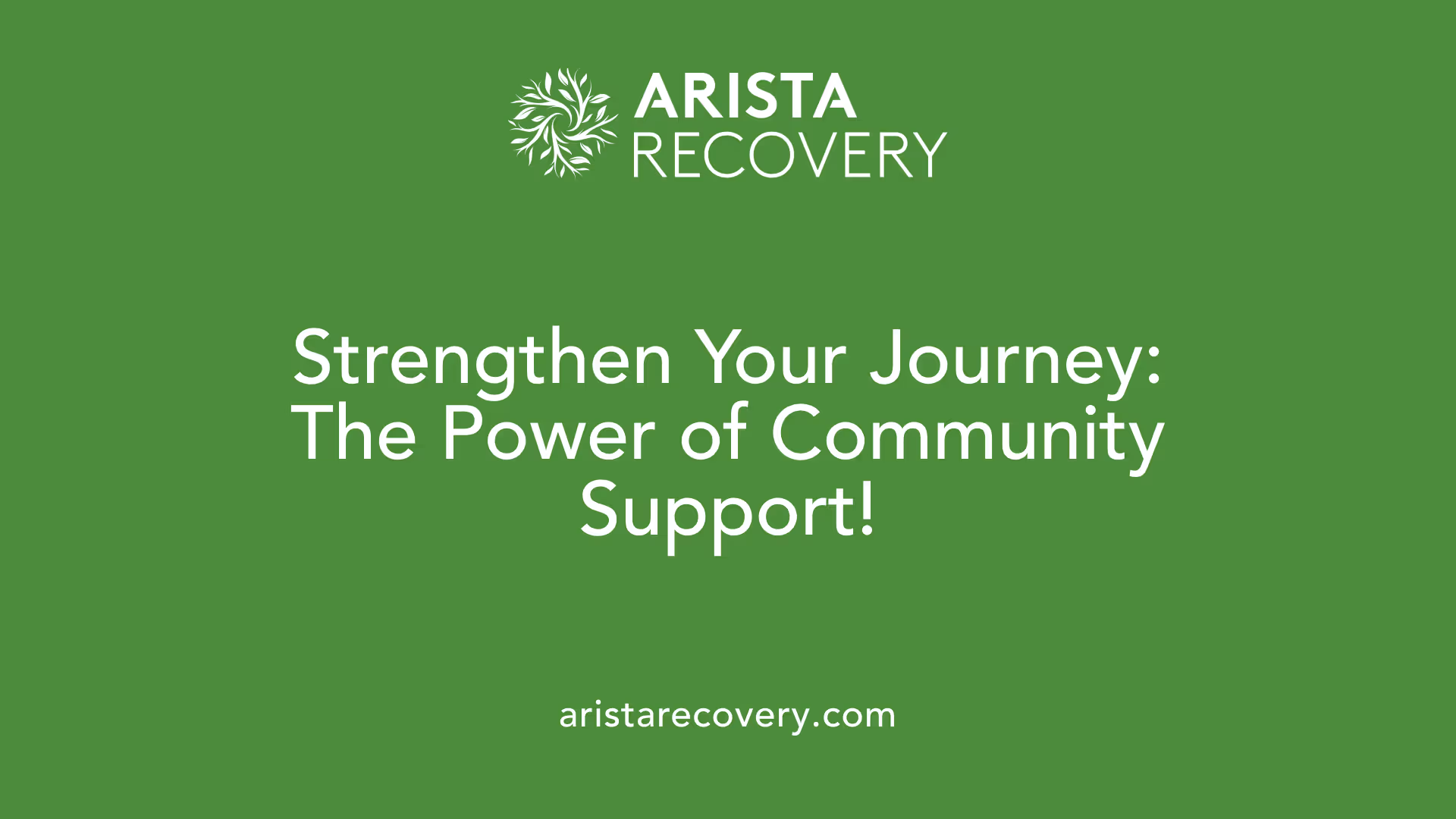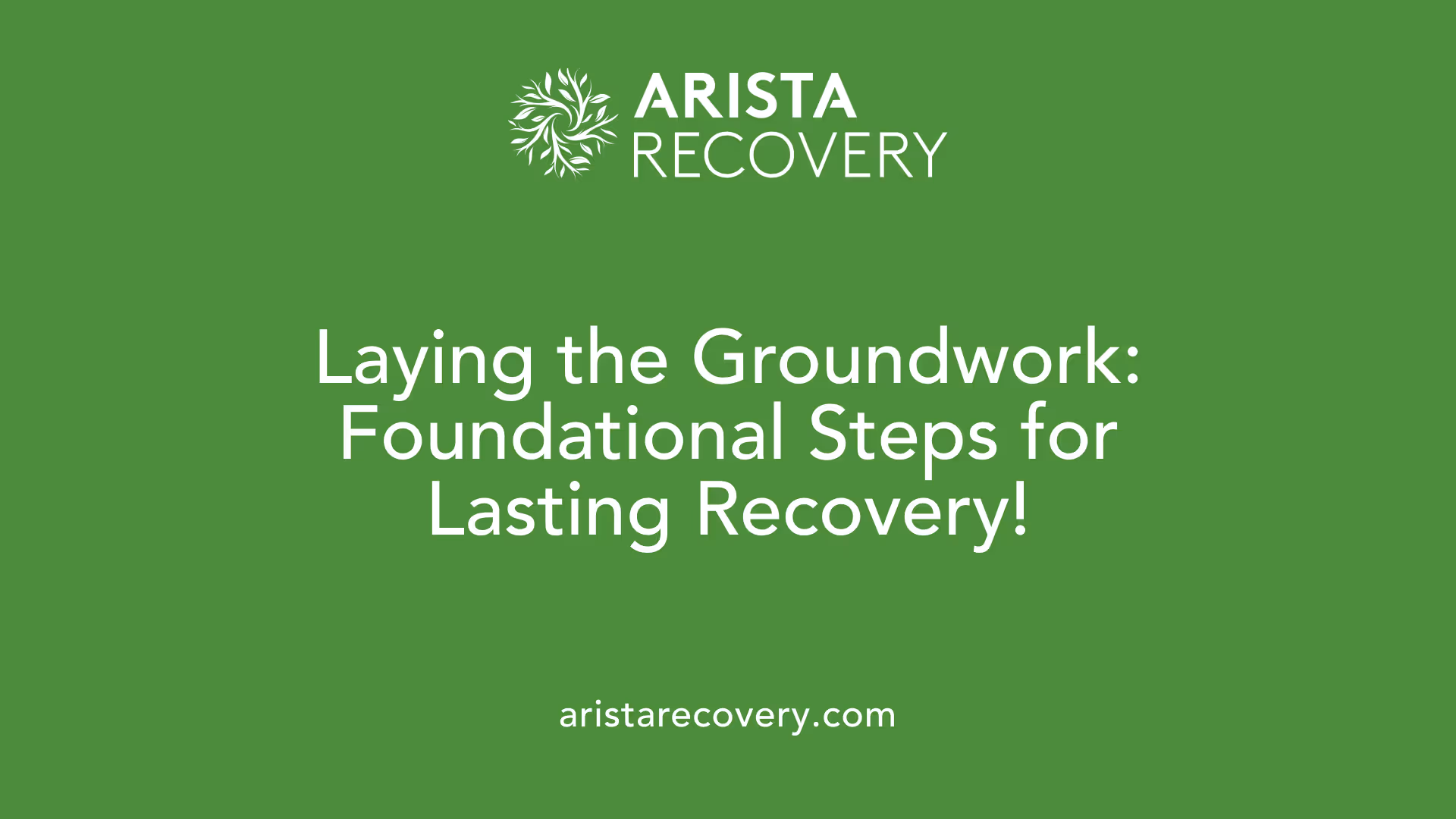3 More Guidelines to Guarantee Success in Early Recovery

Understanding the Importance of Early Recovery
Early recovery marks a pivotal time in the journey from addiction to sobriety. This stage, usually lasting the first 90 days after ceasing substance use, is filled with challenges. However, it also presents an opportunity to cultivate new habits and strategies that can set the foundation for lasting recovery. By adhering to targeted guidelines that promote resilience and well-being, individuals can navigate this vulnerable period more effectively. In this article, we explore three essential guidelines designed to ensure success in early recovery.
Key Facts on Recovery Strategies

- Setting clear goals using the SMART framework enhances focus and accountability in recovery.
- Regular physical activity boosts mood by releasing endorphins, crucial in the early recovery phase.
- Implementing self-care routines improves emotional health and can mitigate anxiety and depression symptoms.
- Building a strong support network significantly reduces feelings of isolation during recovery.
- Accountability in recovery is enhanced through regular check-ins and goal sharing with supportive peers.
- Engaging with peer support provides inspiration, motivation, and shared learning experiences.
- Professional guidance from therapists and support groups is essential for effective recovery management.
- Healthy coping mechanisms can help manage stress and prevent relapse triggers in recovery.
- Establishing a structured routine provides stability and reduces unpredictability associated with recovery.
- Understanding addiction and related mental health issues greatly influence the success of recovery efforts.
1. Set Clear and Achievable Goals

Goal-setting in Early Recovery
Setting clear and achievable goals is a fundamental strategy for anyone navigating the complexities of early recovery from addiction. Goals provide a personal roadmap, transforming abstract aspirations into specific, actionable steps that individuals can work towards daily. This clarity helps to maximize focus and minimize feelings of being overwhelmed, especially during the turbulent first days, weeks, and months after achieving sobriety.
Utilizing the SMART Framework
One effective method of goal-setting is the SMART framework. This approach emphasizes creating goals that are:
CriteriaExplanationExampleSpecificClearly define the goal"I will attend two support group meetings this week."MeasurableEnsure progress can be tracked"I will track my daily exercise on a calendar."AchievableSet realistic goals"I will aim for a 15-minute walk daily."RelevantAlign goals with personal recovery needs"I want to join an art class for emotional expression."Time-boundSet a deadline"I will achieve this by the end of this month."
This structured approach not only fosters accountability but also enhances motivation and determination. Individuals can celebrate each small victory, reinforcing their commitment to recovery.
Direction and Motivation
Establishing SMART goals provides more than just a direction. It instills a renewed sense of purpose, which is often vital during early recovery. As individuals experience various emotional and psychological challenges, having clear objectives can serve as a motivator to persist through difficult moments.
Maintaining momentum becomes easier when daily tasks are aligned with broader recovery goals. Rather than feeling lost in the vastness of change, individuals can focus on tangible achievements that reflect their progress. This promotes a positive mindset and encourages continual self-reflection, enabling individuals to adapt their goals as their recovery evolves.
Thus, SMART goal-setting is not just about creating a checklist but about redefining one's path toward a healthier, substance-free life. It's an ongoing process that promotes emotional stability, resilience, and a commitment to self-growth, all essential components of sustaining long-term recovery.
2. Prioritize Self-Care and Healthy Habits

Importance of Physical Health
In the early stages of recovery, maintaining physical health is crucial for fostering overall wellness. Making time for regular exercise can significantly improve physical and emotional well-being. It doesn’t have to be intense; even moderate physical activities like walking, cycling, or yoga can provide the necessary benefits. The release of endorphins during exercise elevates mood and reduces feelings of anxiety and depression, which are common during this vulnerable period.
Emotional Well-Being Strategies
Emotional health plays a significant role in recovery, and implementing self-care routines can enhance this aspect. Engaging in mindfulness practices, such as meditation or deep breathing exercises, can help individuals manage their emotions more effectively. It's also vital to partake in activities that bring joy and relaxation, whether it's reading, painting, or spending time in nature. Keeping a journal can provide a safe space to express feelings and track progress, adding to self-awareness.
Building Resilience Through Routine
Establishing a structured daily routine is critical in promoting resilience. A consistent schedule offers a sense of stability and can alleviate anxiety associated with unpredictability post-addiction. This routine should involve healthy eating habits, regular meal times, and sufficient sleep—essential components for restoring health and mental clarity. Furthermore, setting aside time for personal reflection can reinforce one’s commitment to recovery goals.
Fostering Connections and Community
Engaging with others who are also in recovery can foster a supportive environment that encourages personal growth. This can include participating in support groups or joining community activities that promote sober socialization. Building relationships with like-minded individuals not only helps to mitigate feelings of isolation but also reinforces accountability in maintaining sobriety.
Healthy Coping Mechanisms
Developing healthy coping mechanisms is vital for managing stress and avoiding triggers. Individuals in recovery should seek to identify and implement strategies that work best for them, whether through hobbies, physical activities, or community engagement. Avoiding high-risk situations and distancing oneself from environments or individuals that may trigger substance use is essential.
Maximizing Progress Through Self-Care
Self-care activities, including nutritional support and emotional management techniques, increase the likelihood of successful recovery outcomes. For instance, consuming a balanced diet rich in whole foods can aid both physical and mental health, providing the necessary nutrients to combat cravings and moods swings.
Table of Self-Care Strategies
Self-Care StrategyDescriptionBenefitsRegular Physical ActivityEngage in exercises like yoga and walkingBoosts mood, reduces anxietyMindfulness MeditationDaily practice of meditation or deep breathingEnhances emotional regulationStructured RoutineEstablish a consistent daily scheduleProvides stability, reduces anxietyJournalingWrite daily thoughts and feelingsImproves self-awarenessSupport GroupsAttend meetings and connect with peersIncreases accountability
Prioritizing self-care and implementing healthy habits in early recovery provides individuals with the tools needed for lasting change. By focusing on physical health, emotional well-being, and resilience, those in recovery can create a solid foundation for a fulfilling, sober life.
3. Build and Maintain a Strong Support System

The Role of a Support Network
A robust support network is fundamental in the early recovery phase. Individuals overcoming addiction often experience feelings of isolation. By surrounding themselves with supportive people, including family, friends, and peers who understand their journey, they can significantly reduce these feelings. This network not only provides emotional support but also creates an environment of accountability, which is crucial for maintaining sobriety.
Establishing Accountability
Accountability is a key aspect of recovery. When individuals know that others are tracking their progress, they are likely to remain committed to their goals. Support networks can help establish this sense of accountability in several ways:
- Regular Check-ins: Frequent conversations with supportive friends or mentors can help keep one on track, discussing challenges and celebrating successes.
- Goal Sharing: Sharing personal goals with trustworthy individuals can create a sense of obligation to follow through, fostering a commitment to recovery efforts.
- Feedback: Receiving constructive feedback from those with experience can guide individuals in making better decisions, helping navigate their recovery journey more effectively.
Connecting with Peers
Peer support is invaluable during recovery. Engaging with others who share similar experiences can provide inspiration and motivation. Community connections can help individuals:
- Share Experiences: Discussing challenges and victories in a safe space can lead to mutual understanding and encouragement.
- Learn Coping Strategies: Peers can offer insights into strategies that have worked for them, helping newcomers navigate their early recovery with practical advice.
- Participate in Sober Activities: Finding enjoyment in sober activities can enhance socialization without the influence of substances. Activities such as group exercise, art classes, or outdoor adventures promote community while fostering new, healthy habits.
Building a Network with Professional Support
In addition to personal relationships, seeking professional guidance through therapy or support groups like Alcoholics Anonymous (AA) or Narcotics Anonymous (NA) is essential. These groups provide a structured environment for individuals to share their struggles and successes, reducing the risk of relapse.
Summary Table: Importance of a Strong Support System in Recovery
AspectDescriptionBenefitsSupport NetworkInvolves family, friends, and peers who understand addictionReduces isolation, enhances emotional supportAccountabilityTracking progress with support from othersIncreases commitment to recovery goalsPeer ConnectionEngaging with those undergoing similar challengesOffers shared learning, encouragementProfessional GuidanceSeeking help from therapists or support groupsProvides structured support and resourcesSober ActivitiesParticipating in social events without substancesBuilds new friendships, fosters enjoyment
Incorporating a support network into recovery strategies plays a significant role in maintaining motivation and resilience. It ensures that individuals are not navigating the path alone, making the journey toward sobriety more manageable and enriched.
Foundational Steps and Influencing Factors in Recovery

What is the first and most important step to recovery?
The first and most important step to recovery is admitting that there is a problem and being open to seeking help. This courageous acknowledgment allows individuals to recognize their need for assistance and initiates the journey toward sobriety.
Creating a supportive environment where loved ones can encourage this admission without judgment is crucial. Seeking help often involves reaching out to resources such as SAMHSA’s National Helpline, which connects individuals with local treatment options.
Ultimately, this initial step sets the foundation for effective treatment and recovery.
What are the factors that contribute to successful addiction recovery?
Successful addiction recovery is influenced by various factors:
- Understanding Addiction: A deep understanding of the nature of addiction and its impact on brain function helps individuals to set realistic, achievable goals.
- Mental Health: Addressing co-occurring mental health issues is critical, as untreated conditions can exacerbate substance use problems.
- Support Systems: Building a robust support system is essential. This includes family, friends, and participation in support groups, all of which enhance recovery outcomes.
- Self-Care Practices: Incorporating self-care practices, such as regular exercise, is vital for maintaining motivation and improving mental health.
- Recognizing Personal Needs: Utilizing methods like HALT (Hungry, Angry, Lonely, Tired) helps individuals recognize their emotional state and manage cravings effectively.
- Motivation for Change: Maintaining motivation through strategies such as motivational interviewing empowers individuals to face and overcome challenges encountered during the recovery process.
Influencing Factors in Recovery
In addition to these foundational elements, several influencing factors further contribute to successful recovery, such as:
FactorDescriptionImpactSupport NetworkA mix of family, friends, and recovery communities.Provides emotional support and reduces feelings of isolation.Professional GuidanceTherapy and counseling services.Helps address underlying issues and fosters new coping strategies.Healthy LifestyleRegular physical activity and balanced nutrition.Encourages overall wellness and decreases the likelihood of relapse.Goal SettingEstablishing SMART goals.Offers structure and a sense of direction, motivating individuals to continue.Relapse Prevention PlanPersonal strategies for handling triggers and cravings.Enables proactive management of potential setbacks, ultimately enhancing stability.
By acknowledging the problem and understanding the contributing factors, individuals can create a sustainable path toward recovery, significantly improving their chance of maintaining long-term sobriety.
Navigating the Path of Sobriety
Successfully navigating early recovery requires dedication to practices that foster resilience, motivation, and stability. By setting clear goals, prioritizing self-care, and actively engaging with a strong support system, individuals can lay a solid foundation for lasting sobriety. These guidelines not only help manage the immediate challenges faced in early recovery but also equip individuals with the tools necessary for long-term success. Remember, recovery is a unique journey for everyone, and employing tailored strategies can significantly enhance the likelihood of sustained sobriety and personal growth.
References
- Guidelines to Guarantee Success in Early Recovery - Waves of Hope
- Guidelines to Guarantee Success in Early Recovery
- Discover 3 Secrets to a Fulfilling Sober Lifestyle - Wish Recovery
- How to Succeed in Early Sobriety - First Steps Recovery
- 10 Realistic Goals in Early Recovery - Tranquility Woods
- How to Stay in Addiction Recovery - 9 Tips For Long-term Recovery
- Your First 90 Days Sober - Royal Life Centers at Chapter 5

